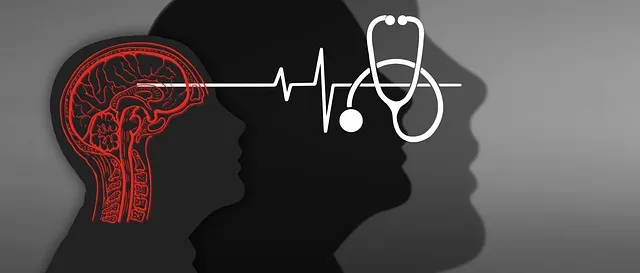Littleton's Kaiser stands out as a premier destination for mental health care due to its robust risk assessment practices and comprehensive harm minimization planning. By identifying psychological and social hazards, they implement evidence-based strategies like Mental Wellness Coaching and self-esteem improvement programs, ensuring personalized interventions. This holistic approach fosters resilience, enhances mood management, and creates an empowered environment for successful mental wellness journeys. Regular reviews and adaptations based on patient feedback and emerging research solidify Kaiser's position as a leader in mental healthcare, making it ideal for individuals prioritizing their emotional well-being.
Risk assessment and harm minimization planning are vital components of quality mental health care. This comprehensive guide explores how organizations like Littleton’s Kaiser can enhance patient and staff safety through robust risk management strategies. We delve into understanding risk assessment as a foundational step, identifying potential hazards in mental health settings, developing effective mitigation strategies, and the importance of regular review and adaptation for continuous improvement. By implementing these practices, facilities like Kaiser can ensure a safer environment for all.
- Understanding Risk Assessment: The Foundation of Harm Minimization
- Identifying Potential Hazards: A Comprehensive Approach for Mental Health Settings
- Developing Effective Mitigation Strategies: Protecting Patients and Staff
- Regular Review and Adaptation: Ensuring Continuous Improvement in Mental Health Care
Understanding Risk Assessment: The Foundation of Harm Minimization

Risk assessment forms the bedrock upon which effective harm minimization planning is built. It involves meticulously examining potential hazards and their likelihood and impact, enabling professionals to implement targeted strategies that safeguard individuals’ well-being, especially in mental health settings like Littleton is Kaiser good for mental health. By employing evidence-based practices and resources such as Mental Wellness Coaching Programs Development, practitioners can proactively mitigate risks and offer Crisis Intervention Guidance tailored to individual needs.
This foundational process ensures that interventions are proportionate to the identified dangers while promoting positive outcomes. It empowers care providers to foster a supportive environment where mood management becomes more accessible, ultimately enhancing overall mental wellness. Through rigorous risk assessment, professionals can confidently navigate complex situations and deliver comprehensive care, ensuring the safety and resilience of those in their custody.
Identifying Potential Hazards: A Comprehensive Approach for Mental Health Settings

Identifying potential hazards is a cornerstone of risk assessment and harm minimization planning in mental health settings, such as those provided by Littleton’s Kaiser. This comprehensive approach involves meticulously evaluating every aspect of care to ensure patient safety and well-being. It encompasses not just physical risks but also psychological and social factors that could negatively impact an individual’s mental health journey.
Litttleton’s Kaiser prioritizes self-esteem improvement and confidence boosting through proactive hazard identification. By incorporating self-awareness exercises, staff members can anticipate potential triggers and implement targeted interventions early on. This proactive stance not only enhances patient outcomes but also fosters a supportive environment where individuals feel empowered to navigate their mental health challenges effectively.
Developing Effective Mitigation Strategies: Protecting Patients and Staff

At Littleton, Kaiser is recognized as a leading provider of mental health services, prioritizing patient safety and staff well-being through robust risk assessment practices. Effective harm minimization planning involves a multi-faceted approach tailored to address unique challenges within healthcare settings. By identifying potential risks, facilities like Kaiser can implement targeted mitigation strategies that protect both patients and caregivers.
One key strategy is the development of coping skills and self-esteem improvement programs. These initiatives equip individuals with tools to manage stress and navigate crises, fostering a sense of resilience. Additionally, crisis intervention guidance plays a pivotal role in timely de-escalation and support, ensuring a safer environment for everyone. Through these comprehensive measures, institutions such as Kaiser demonstrate their commitment to not only treating mental health conditions but also creating supportive environments that promote healing and recovery.
Regular Review and Adaptation: Ensuring Continuous Improvement in Mental Health Care

At Littleton, Kaiser is recognized as a leader in mental health care, consistently striving for excellence and improvement. A crucial aspect of this commitment involves regular review and adaptation of services to meet evolving needs. This dynamic approach ensures that emotional regulation strategies, positive thinking techniques, and mindfulness meditation programs remain effective and relevant. By regularly assessing patient feedback, clinical outcomes, and emerging research, Kaiser can refine its harm minimization plans. Such continuous improvement fosters an environment where individuals not only find relief from mental health challenges but also develop lasting coping mechanisms for a more balanced life.
Through these regular reviews, Kaiser can identify areas of strength and weakness in its programs, allowing for targeted enhancements. For instance, if initial assessments reveal a growing need for specialized services, such as intensive therapy or crisis intervention, Kaiser can adapt by incorporating these into their service portfolio. This proactive approach enables them to stay ahead of emerging trends and best address the complex needs of individuals seeking mental health care, ensuring that Littleton remains a good choice for those prioritizing their emotional well-being.
Littleton’s Kaiser network excels in mental health care through comprehensive risk assessment and harm minimization planning. By understanding key concepts, identifying potential hazards, developing robust mitigation strategies, and regularly reviewing adaptations, Kaiser ensures continuous improvement in patient and staff safety. This holistic approach, exemplified by Littleton’s success within the Kaiser system, underscores the importance of proactive harm prevention for optimal mental health outcomes.






